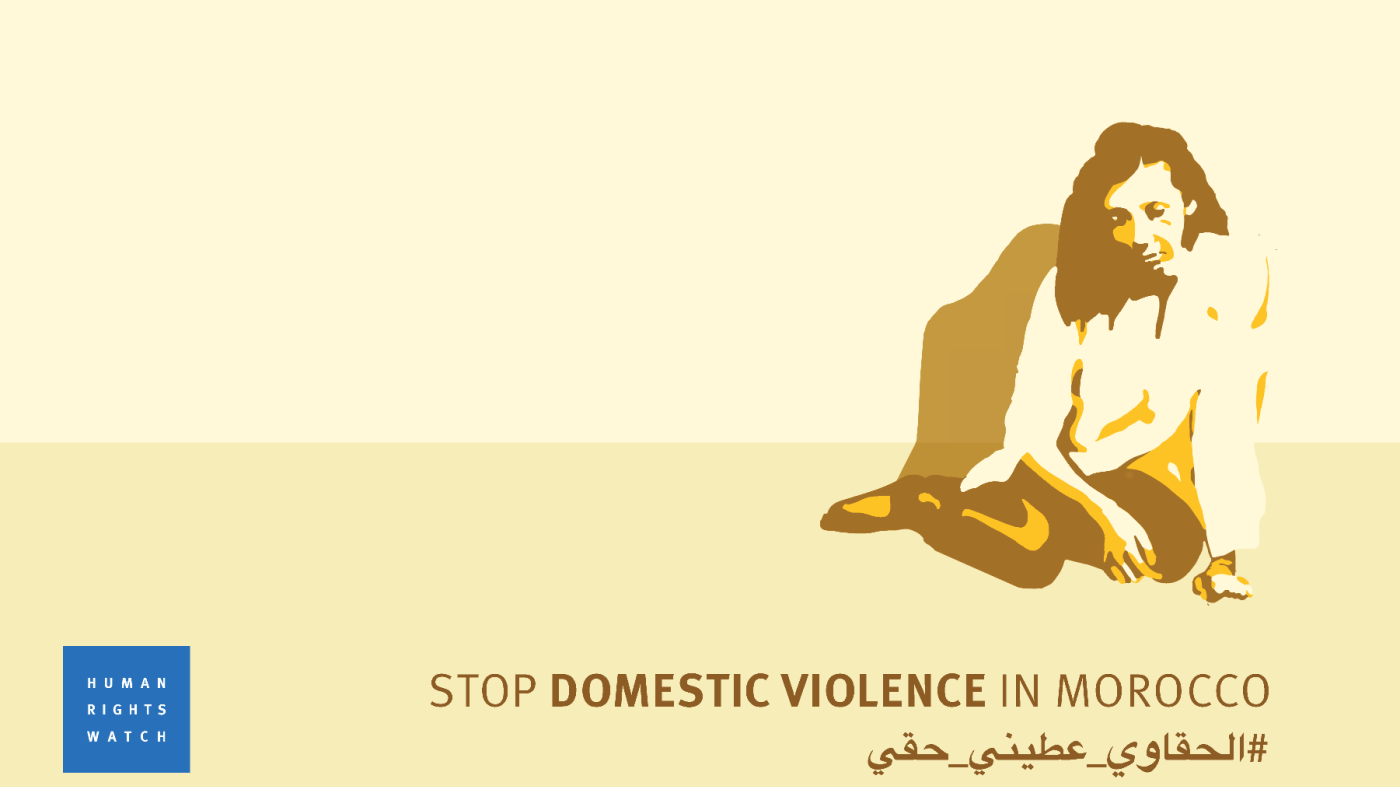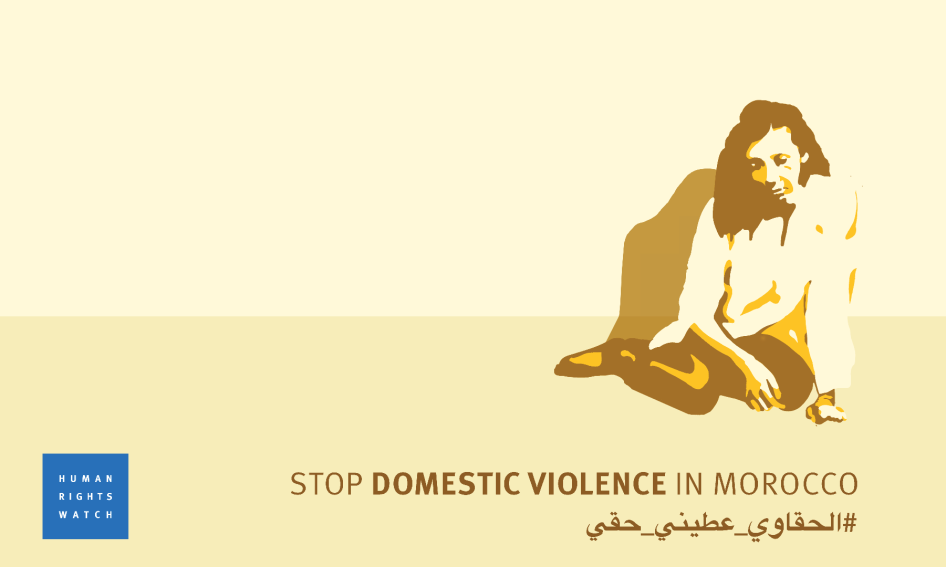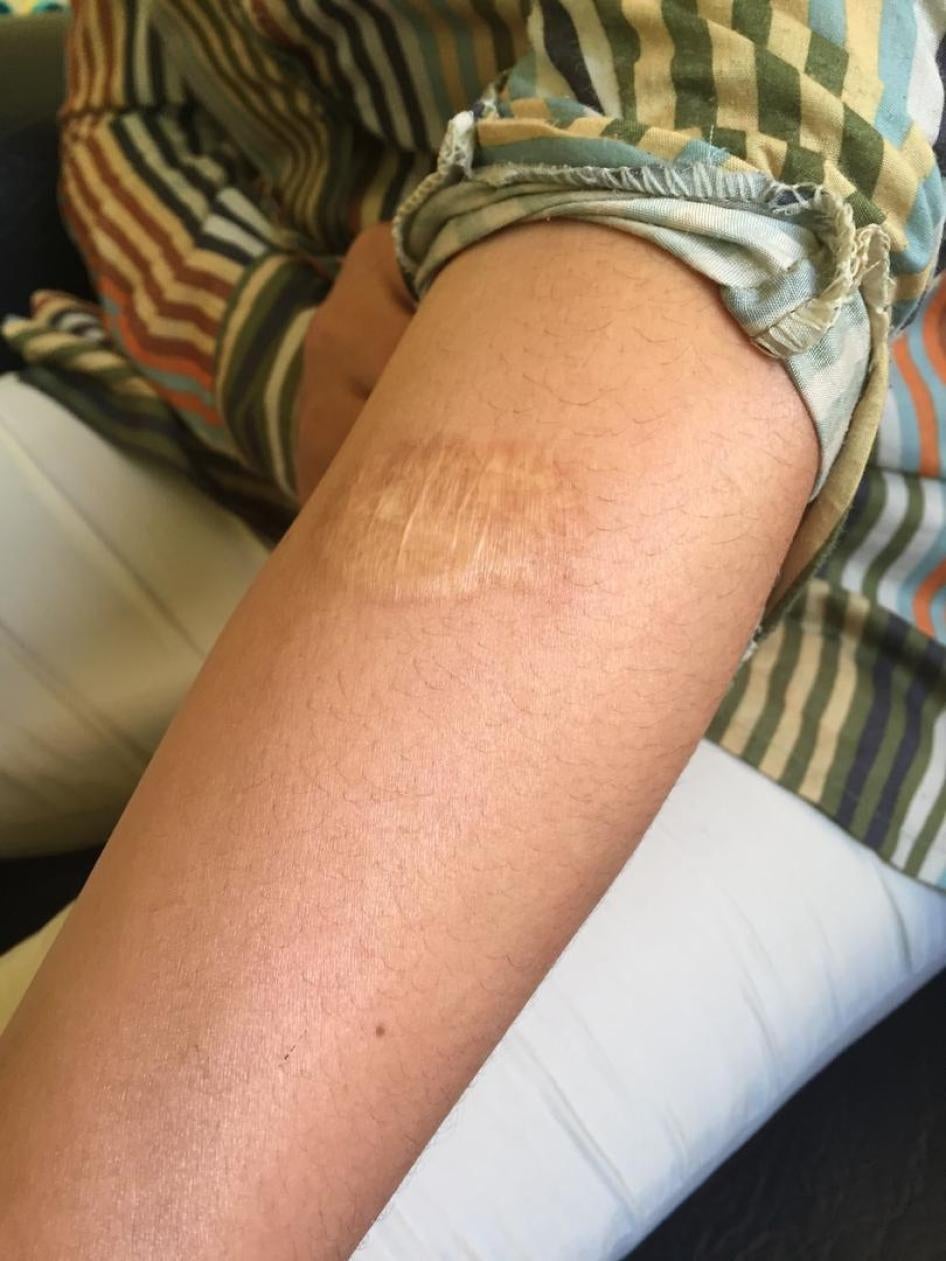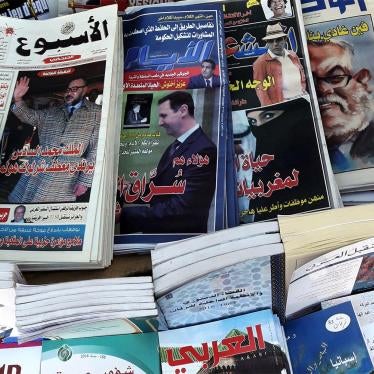Moroccan authorities often fail to prevent domestic violence, protect survivors, and punish abusers. We want the Moroccan Minister of Women to strengthen and adopt laws to improve protection for victims of domestic violence. We are asking for your support to back women’s calls for a strong law! Fatima is a domestic violence survivor who wants the government to help women like her. Here is her story.
Fatima (name changed to protect her privacy), 34, from Fez, Morocco, married when she was 17 and had two children with her husband. She said her husband started abusing her after six years of marriage, insulting her every day and beating her about once a month. She said he threw things at her, like books, a phone, and a glass. He spat in her food, and punched her so hard she lost a tooth. She said he burned her arm with a barbeque skewer and her leg with a cigarette. He also raped her frequently, she said. “He forced me to have sex with him and do it the way he likes. He forced me to have anal sex.”
Fatima said she went twice to the police in Fez. The first time was in 2006, after her husband burned her with a barbeque skewer:
The police called him and he told them, “Look at this woman. I saved her from prostitution. She said I burned her when she burned herself.” He [the policeman] was looking at me and said, “Shame on you.” I said to him, “Is there a woman who can burn herself?” They asked me if there were eyewitnesses. I said, “No, it was done inside the house. Only my child was at home.” They said to me, “If you have eye-witnesses we can help you, if not, we cannot.”
In 2007, she said her husband threw a glass filled with acid on her, but she managed to shield herself and it landed on her coat and her son’s school bag instead of her skin. “For 15 days after that,” she said, “he locked me in the house, so I didn’t go to the police. I continued to stay with him after that because I was afraid of him.”
In 2010, Fatima said, her husband got drunk and demanded that she take off her clothes in front of their 9-year-old son. She refused, and he tried to stab her. She ran, and her neighbor paid for a taxi to the police.
She said the police seemed afraid to confront her husband, and advised her to go to her family. She said she filed a complaint with the prosecutor in Fez, but went back to her husband a week later under pressure from her brother-in-law. She said neither the police nor the prosecutor followed up with her.
Fatima left her husband in June 2015 and, at the time of the interview, was applying for a divorce while staying in a private shelter. Her 14-year-old son was living with her family and her 4-year-old son was still with her husband. She wanted to have her children with her.
-----
Human Rights Watch interviewed “Fatima,” along with 19 other women and girls in Morocco, in September 2015. Her case exemplifies the types of domestic abuse the women experienced and the weak response by the Moroccan government.
Human Rights Watch found that Moroccan authorities often fail to prevent domestic violence, protect survivors, and punish abusers.
Domestic violence survivors like Fatima deserve much more from their government. Morocco should strengthen and adopt laws to improve protection for victims of domestic violence. Human Rights Watch wrote to the Moroccan government, including Bassima Hakkaoui, Minister of Women and Family, to ask the officials to strengthen the bill on violence against women, the penal code reforms, and the criminal procedure reforms in the following areas:
-
Definition and Scope of Application of Domestic Violence Laws: The bills should clearly define “domestic violence,” and criminalize marital rape. In line with UN standards, the definition should include former spouses and individuals in non-marital intimate relationships.
-
Prevention Measures: The bills should require prevention measures, including awareness-raising, educational curricula, and sensitizing the media about violence against women.
-
Law Enforcement and Public Prosecution Responsibilities: The bills should specify police and prosecutor duties in domestic violence cases. They should require police and public prosecutors to coordinate directly, rather than telling complainants to deliver messages between the two.
-
Justice System Responsibilities: The bills should clarify that a domestic violence complainant’s testimony may, in some circumstances, be sufficient evidence for a conviction, without other witnesses.
-
Orders for Protection: The bills should specifically provide for emergency and longer-term protection orders – that is, restraining orders – for domestic violence survivors at risk of abuse. Moroccan law does not currently provide for such orders. The bill should clarify conditions, and establish clear procedures, for both types of orders.
-
Other Services and Assistance for Survivors: The bills should provide for support and services to domestic violence survivors, including shelter, health services, psychosocial care, legal advice, and hotlines. The government should create a trust fund or other financial assistance for survivors of domestic violence.
For more information including our full set of recommendations to the Moroccan government see Morocco: Tepid Response on Domestic Violence
If you want to help women in Morocco like Fatima, call on Bassima Hakkaoui, Morocco’s Women and Family minister, to strengthen the bill on violence against women.






